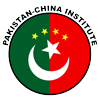China-Pakistan-Afghanistan the anti-terror tripod
Source : Pakistan Today Date : 13-02-2015
.jpg) |
Speakers urge need for joint efforts for peace and development in the region
“Soft power is the more effective and efficient concept in contemporary global politics because of its endurance and sustainability. Hard power, however, is less useful today as the global system changes in its disfavour. Pakistan can also utilise its soft power which is its culture, religion, ethnicity and historic trade relations in strengthening its bonds with Afghanistan for the peace, security and economic development of the region,” said former Afghan ambassador and National Defence Division Secretary Muhammad Sadiq while speaking at the launching ceremony of “Trilateral Dialogue China-Pakistan-Afghanistan”.
After the change of Afghanistan government, the relations between the two countries have taken a new positive turn. What we need today is to cut off the past memories and take new direction for cordial relations and wellbeing of future generations,” said Sadiq.
He said that Pakistan has leverage on Afghanistan than any other country of the world because of historic, cultural, religious lingual and ethnic ties. Interestingly on Pakistani national language, the Dari or the Afghani Persian has huge impact, he said.
“Similar is the case with national anthem of Pakistan which is almost in Dari or in Afghani Persian language. In terms of cultural bonds, Iqba, for instance, is also revered and eulogized in Afghanistan as in Pakistan and also the grave of Afghan national poets Khushal Khan Khattak and Rehman Baba are in Pakistan.”
He added that Pakistani products, education system, edible items fascinate Afghanis more than Pakistanis. He said that even Pakistanis would like to use imported things in their houses but Afghanis prefer Pakistani goods as he found Pakistani electrical and medical products in several Afghan houses.
He revealed that during his tenure as an Afghanistan ambassador, he visited all provinces of Afghanistan except few small towns and witnessed common folk attitude toward Pakistan very positive and warm.
“Now the time has approached to solve all of existing problems between brotherly countries via joint mechanism and on equal footings. First of all, to ensure peace in the region we must reclaim our border areas which are currently in the hands of criminal and terrorists. Secondly, we vow not to interfere in each other’s internal affairs. Lastly, we must promote people to people contacts, trade and cultural activities via awarding mutual scholarships for students and visas for academics, civil society and media persons.”
Speaking on the occasion, Pakistan-China institute (PCI) Chairman Senator Mushahid Hussain Syed said that both countries should help each other’s efforts in eradicating militancy and terrorism. He said that currently, after the 16 December tragedy in Peshawar, the society is in complete concord against terrorism and the debate over good and bad Taliban is over. He added that China is a key player in the region and playing a proactive role for the stabilisation in the region.
Moreover, Ahmed Rashid, a renowned journalist, said that China is determinant to bring peace in Afghanistan. He said that China is promising to build new economic corridors in the region but without peace in Afghanistan and in Pakistan (especially in Balochistan) it is hard to achieve these economic and developmental aims.
“Pakistan should also set its house in order to usher new era of development and prosperity. He claimed that Afghan armed forces are doing more than Pakistan to deter the militants. Pakistan should break core of Afghan Taliban sanctuaries and allow Afghan officials to dialogue with Afghan Taliban.”
Konard Adenauer Stifting (KAS)’s Gerhard Whalers said that Asia was the most dynamic region of the world. “After withdrawal of Allied Forces from Afghanistan, China and Pakistan would have huge role in stabilisation of Afghanistan because of its vulnerable to militancy. However, it is positive to note that both countries are witnessing improvement in their mutual relations.”
